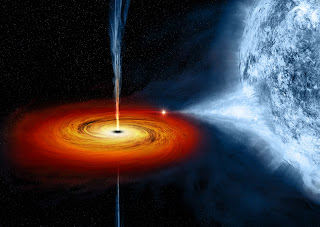"For a fever that strikes daily, one must take a white zuz (coin) and go with it to a salt evaporator, and weigh against it its weight in salt. He then must tie the salt by the neck opening of his shirt with a strand of hair. This will cure him of fever." Or,
"He must sit at the crossroads and when he sees a large ant carrying something he must take the any and place it into a copper tube. He must then close the tube with lead and seal it with 60 different types of seals. He must shake the tube and then say to the ant 'your burden upon me and my burden upon you!'"
Seems like a lot of trouble but what do you expect from such ancient and whimsical people? To those who have a bit of background in Talmudic and mystical exegesis it may be possible to discern the traces of code-words in these "toil and trouble" formulas. Could it be that they are actually teaching more than they seem to be? According to several of the great mystics they are doing just that. According to Rabbi Eliyahu Kramer of Vilna, aka the Vilna Gaon:
"It was decreed that the holy secrets of Moses's teachings would be desecrated by being clothed and hidden in forms such as these strange sounding expositions of the rabbis, rather than being clearly evident. This is turn, would make it possible for the scoffers of each generation to belittle them."
Why that should be is a longer story but suffice it to say for now that "on the surface the 'Aggadot', the exposition of the rabbis, appear as wasted expressions, God forbid, yet all the secrets of the universe are concealed within them."
How about other discredited beliefs of theses sages such as the belief that the stars are fixed in great spheres that rotate around the Earth or that wine is good for pregnant women or that vermin spontaneously generate? Doesn't that all call into question everything that they believed? Actually no, and for three reasons.
The first is that these sages never claimed to possess the totality of human knowledge - rather, they only claimed to have the fundamental tenets of Jewish spirituality. As such, to have accepted the science of the day (much as we do) or commonly held folk-remedies simply isn't a theological problem. Had more updated beliefs existed, they would have recorded those.
Secondly, their interest in natural phenomena (science) was largely driven by what baring it had on Jewish law. Just as everyone knows that there's no such thing as a sunset (as the sun remains still) but doesn't care since it seems to be setting, so too, in a case like spontaneous generation of vermin, inasmuch as it looked to the naked eye that they just sprang up from nowhere, that was enough to base Jewish law off of - the actuality of the matter has no applicable relevance in this case.
Lastly, there is the teaching (along the lines of the Vilna Gaon) that the science of the day that was recorded in the Talmud was actually only intended as a vehicle to teach deeper wisdom. Consider the words of Rabbi Moshe Chaim Luzzatto:
"The sages recorded much of the esoteric tradition that they had received in matters relating to nature or astronomy. In other words, they utilized the knowledge of nature and astronomy that was accepted among gentile scholars of their time in order to transmit something else. Thus, they never intended to teach physical 'facts' concerning these phenomena, but rather to utilize these facts as vehicles for Kabbalistic secrets. One should therefore not think that they were wrong because a particular model which they used is no longer accepted. Their intention was to clothe the hidden tradition in the accepted knowledge of their generation. That very tradition itself could have been clothed in a different garment according to what was accepted (as scientific fact) in other generations."
Like the music of Schoenberg or the writing of Joyce, to the uninitiated it can all come across as so much gibberish. Those who have the humility to suspend judgement and have taken the time to investigate beyond a superficial first reading may just discover an unforeseen world of surprising order and insight.














